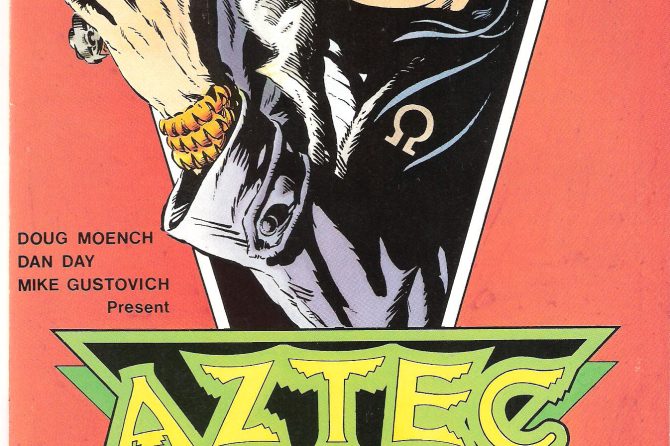
I was going to devote this initial essay to The Shaver Mystery, that forties phenomenon masterminded by Raymond Palmer which put science fiction for the first time (and not in an helpful fashion) under the lens of Henry Luce and Time but have decided to take a pass. Wikipedia has already entirely reconfigured the culture. Try “The Shaver Mystery” at that sterling virtual publication and it will all be there in elegant summary: Crazy Richard and his Deros, cynical Ray Palmer who was probably rendering Shaver’s ramblings into something approaching prose, an Alternate History of Humankind which bedazzled fringe fandom and amused Luce mightily. The Shaver Mystery burned to a crisp in 1947 when circulation (which had tripled) faded, when Palmer lost interest, when the hostility of so-called sercon fandom had approached fury. The Shaver Mystery may not be the most important contribution of Amazing Stories to our national contribution but it remains, almost seven decades later, its most prominent.
Shaver and his Mystery made sercon fandom crazy with rage because the phenomenon (thanks to Luce) became for many of the broader public synonymous with science fiction. The paranoid ramblings of a deranged mail carrier (restored to coherence by a chuckling Raymond Palmer) became the voice of science fiction for Luce’s millions of readers. They became in fact synonymous with science fiction and this at a time when John Campbell’s Golden Age Astounding was leading the genre toward and then past a pinnacle of artistic validation. Kuttner, Moore, Asimov, Van Vogt and their (not so) lessers had accomplished the great work, had led the genre and its readers toward transcendence….and here was the babbling Richard Shaver and his deros enabling Luce to call that science fiction. The anger, the schism in the readership, the bitterness of writers like Kuttner whose work was being grouped with madness was palpable and the scarring was permanent. Science fiction readers, even young readers, still default into a kind of frantic defensiveness when they are grouped with the deros, the Rosicrucians, the Scientologists. “We are a serious literature” they bellow until we are deaf…but from the ether the chuckling Luce still has the last word with the majority of that part of the population paying attention.
Anyway, that would have been the sense and subject of my opening essay had I not thought better of it and realized that Wikipedia had made expository writing obsolete for any writer paying attention. So, casting that aside, I elected to write instead of Alfred Bester (1913-1987), probably the best science fiction writer of his time or maybe any time. Bester (he’s in Wikipedia also of course but this is not an expository essay) has a signatory relationship to Amazing: his first published story “The Broken Axiom” won a put-up contest in 1939 ($50 prize) and he had a few stories later on, notably the 1953 “Roller Coaster” which is pretty good. But Bester made his bones in Astounding with “Adam and No Eve” and “The Push of a Finger” in the early forties and then cashed in for good with his two 1950’s novels for Galaxy: The Demolished Man in 1952 and The Stars My Destination in 1956. Around and briefly after those two novels were the astonishing dozen or so novelettes which he wrote for Boucher and The Magazine of Fantasy and Science Fiction which are as a body of work, the literary equivalent of the 27 Mozart Piano Concertos….a centralized statement which in the aggregate are an absolute statement of excellence. Wikipedia will; provide the titles and bibliography; I am relieved of that responsibility.

Bester glittered, he glowed, he soared and plunged, he wrote an incantatory dazzling prose which many of us have been chasing for over half a century but Bester’s short stories of that period are like the Beethoven Last Quartets. They were fifty years ahead of the field when they were published and they are fifty years ahead of us today. They will always be fifty years ahead. We do not yet have a lexicon of analysis advanced enough to parse the Opus 131 Quartet and its pendant Grosse Fugue and we may never. “Fondly Farenheit” and “The Men Who Murdered Muhammed” ran so far ahead of our ability to fully understand their genius that they will leave us stupefied a century from now.
Thirty-three years ago I spoke (via speakerphone) to Martin Harry Greenberg’s class for his course in science fiction at the University of Wisconsin/Green Bay. I pontificated verily for my $25 and forty-five minutes and then took questions. “What is the best thing ever to come from science fiction?” a feminine voice asked.
That shut me up for a moment as it was meant to and I groped verbally for another minute on how unreasonable this question was and how there were so many _great_ aspects and emergences and then I said finally “Okay, stipulating that I feel one way today and another tomorrow, that opinion and human life itself are endlessly fluid and motile…notwithstanding all that, the very best thing to ever come from science fiction is Alfred Bester’s short story “The Men Who Murdered Muhammed”.
He was given a posthumous Grandmaster by the Science Fiction Writers of America and he is by no means forgotten but chronology diminishes and it is a great struggle to hold on to the most important parts of ourselves. Epononymously, he was the best we ever had. I miss him and pay him honor.









I met Bester once, back in the 70s at a Philcon if I recall correctly. He seemed like a visitor from the future – bemused over the interest in his writing.
I envy anyone encountering Bester for the first time.
Fans of Bester may want to read a transcript of a wonderful dialogue between Bester and Frederick Pohl.